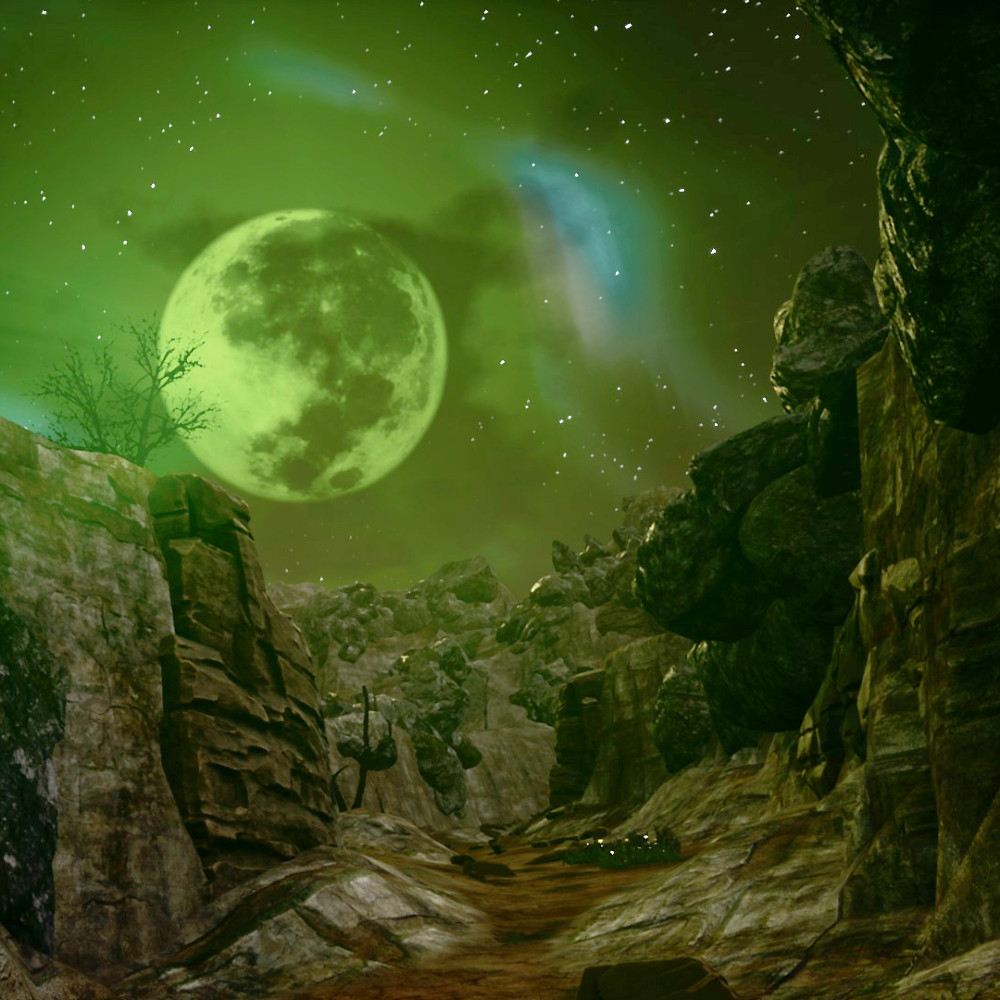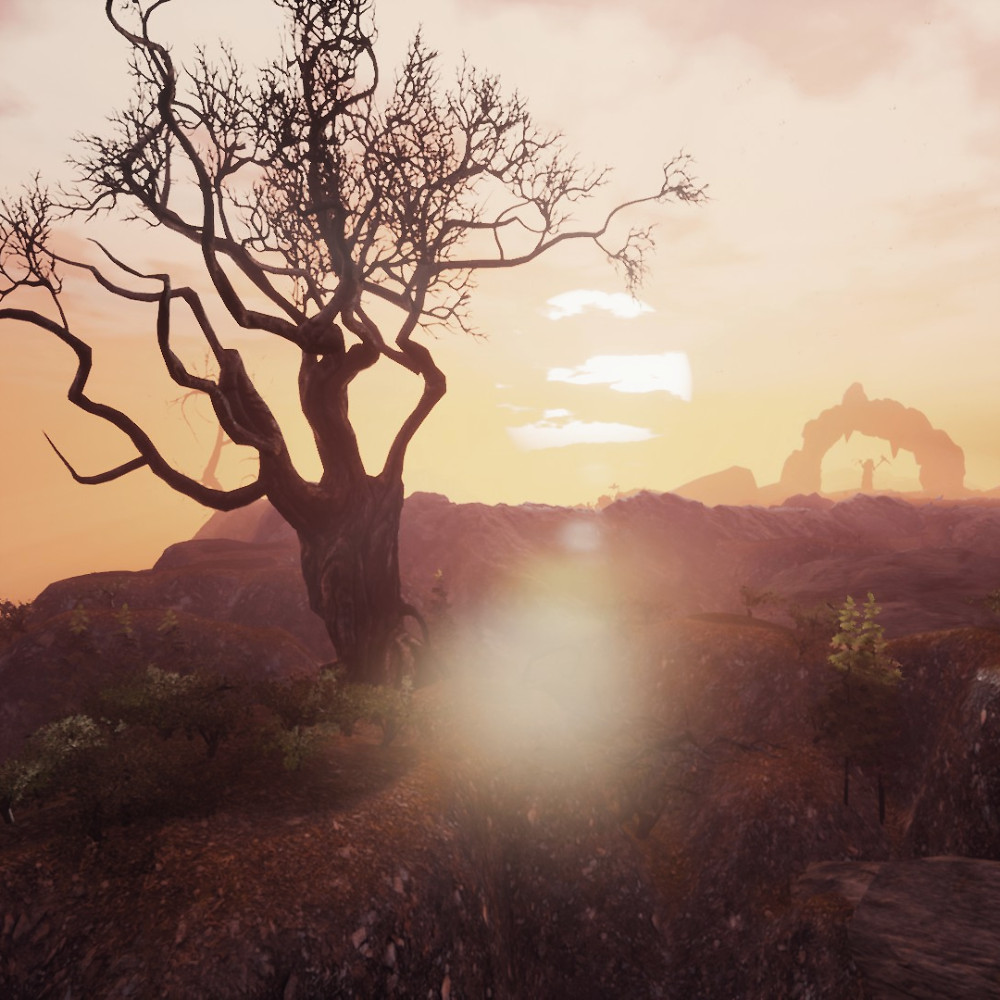The Turkish game creator Tonguç Bodur has created a number of walking games. I took advantage of the recent Steam Christmas sale to buy a selection.
The games are hit and miss, but when one of Bodur’s games hits, it really hits. I’ve already reviewed education, but now I want to comment on a particularly fine example of his work, The Hunting God.
The Hunting God is a walking game, an experience of an Irish / Welsh myth. You walk, and, as you walk, a narrator with a soft Irish accent relays an old God’s tale. The experience is far better than my description makes it seem.

I don’t know my Irish (or Welsh) myth, so I cannot comment on whether this story of the minor God Nodens has any basis in the existing extant. (According to wikipedia, He’s an old English God, still alive under another name in Irish myth, but whether the myth includes this tale, I know not.) I can tell you, however, that the tale feels right, and I could imagine sitting around a camp fire hearing a story–teller catch an audience and take them on a voyage reciting these very words.
As you walk through the Celtic countryside, whether a summer morning, an autumn night, the winter mountain tops, you listen to the tale of the adventures of the God. The settings are beautiful, especially the first, and I have to admit I went a bit wild with the screenshots.
The accompanying sweeping music is perfect for the game. It sets the tone, and works well with the voice to create an effective emotional foundation for both the experience and the poetry. It’s surprisingly sophisticated, with clear echoes of Arvo Pärt in places. Bodur gets his music right!
In the game, you can find some written notes, which range between the incomprehensible text and downright dreadful doggerel. Do not judge the poetry of this work by a couple of the dismal schoolboy rhymes thrown at you when you are daft enough to explore an interaction; listen to the narrator and let him lead you.
The game has three beautiful chapters, with minor interludes. The set pieces contain, and the minor interludes are, simple puzzles. Indeed, puzzle is too strong a word for them. They are almost token interruptions to the flow of the experience, and I don’t see the point of them. Maybe they’re there because computer games are supposed to have puzzles. Perhaps they’re there to ensure you are awake, but the powerful music, the impressive settings, and the hypnotic narration guarantee that anyone but the most sleep–deprived dullard will be wide awake and gawking at the passing myth.
Technically, although beautiful, much of the game is simplistic. I suspect Bodur is a man who has a lot to say in a lot of games, so simply doesn’t have the time to develop a sophisticated technical experience on one of them. This game proves he’s worth listening to whatever the technical weaknesses, so ignore the simplicity, and appreciate the rest of it. The inadequacies do not interfere with the beautiful experience. Bodur is not an animator, he’s a story–teller. The experience is fine so long as you expect a recital around a campfire, not an opera.
Overall, I highly recommend The Hunting God as both a game and as an experience. It guarantees I will explore all of Bodur’s works. The Hunting God is a significant step forward for the walking game genre, and a much better way to absorb mythology than the average video game. I hope it inspires more game creators to move the walking simulator genre onwards. I hope a few poets may feel inspired by this game to give this new genre a go themselves.

